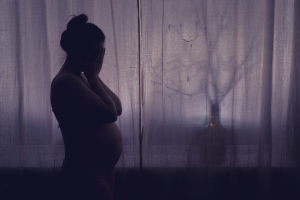An epidemic precedent of faith

Historians often cringe when the word “unprecedented” is used to describe current events like the COVID-19 pandemic. While many aspects of the pandemic are new, devastating diseases are not new to the world, nor to the American experience. In 1793, Yellow Fever killed 10 percent of Philadelphians, forced President Washington’s government to evacuate our first capital, and wrecked its economy for years to come. When cholera swept Cincinnati in 1849 Harriet Beecher Stowe lost her youngest child. It stretched her faith to the breaking point, yet she prayed that her loss might be used for the greater good. Three years later her prayer was answered with the publication of her anti-slavery novel Uncle Tom’s Cabin.
Her Cincinnati years prepared her to write the best-selling novel of the century. Cincinnati was the Gateway to the West for immigrants. For fugitive slaves crossing the Ohio River, it was the passage to freedom. But Cincinnati was also a breeding-ground for cholera, which comes from water-borne bacteria. After Calvin Stowe lost his first wife to cholera, Harriet befriended the lonely professor and the two were married.
Harriet wanted to be an author, but with a growing family she struggled to find time to write. So she hired help for several hours a week. Some of the women she hired were former slaves. Harriet always thought slavery was wrong but now, for the first time, she heard first-hand accounts from survivors whose children were sold away. Harriet could scarcely imagine their grief at this cruel separation.
Until cholera came to town in January 1849. It started among the poor. African Americans and immigrants often lived in cramped quarters, with poor sanitation. They suffered disproportionately then as now.
But by late spring the disease was spreading. Calvin was out of town, so Harriet wrote often. Doctors were getting “used up,” she said. There weren’t enough hearses to haul away the bodies, so farm wagons and furniture trucks were used. On the streets people burned coal fires, laced with lime and Sulphur to combat the miasma. One hundred and sixteen people died in a day. Although the mayor proclaimed a day of fasting and prayer, the bars were so packed that drinkers went out to the streets and imbibed next to coffins awaiting transport.
Then Charley got sick. Harriet was frightened, for any little illness seemed like a death sentence. She tried to bring down the fever by wrapping him in cold wet sheets. Charley rallied, and then got worse. “At last it is over,” Harriet wrote on July 26. “Our dear little one is gone from us.” In her letter Harriet recalled the joy Charley brought her in his short life. When he got sick she fought to save him until all hope was gone. Then she prayed that his suffering would end. “This heartbreak, this anguish, has been everywhere,” she told Calvin “and when it will end God alone knows.” At least four thousand people died of cholera in Cincinnati.
Thereafter the Stowes returned to their native New England. Harriet was expecting another child, but she still she mourned Charley. Now she knew “what a slave mother may feel when her child is torn away from her,” she wrote. And she prayed that the “crushing of her heart” might somehow be used for the greater good.
Congress passed a new Fugitive Slave Law in 1850. Its protected southern “property” by forcing northerners to help capture runaway slaves and by punishing those caught helping fugitives. “I will write something if I live,” Stowe vowed. That something was Uncle Tom’s Cabin, the anti-slavery novel that converted hosts of readers to abolition. Published in 1852, Stowe’s first novel brimmed with compassion and burned with moral outrage. The best seller of the century rocketed skyward like a red flare signaling the coming Civil War.
Harriet Beecher Stowe’s faith did not protect her from loss in the time of cholera, but did give her empathy and courage. At the right time she penned her protest against slavery — a disease that afflicted whites as well as blacks, north as well as south. Harriet’s faith guided her commitment to liberty and justice for all. But the underlying cause of slavery, the moral disease of racism, is still very much with us. The COVID-19 outbreak reveals that, in the richest country on earth, African Americans still suffer disproportionately from disease and lack of health care. Perhaps this new pandemic will raise up others with the faith and courage of Harriet Beech Stowe to address the wrongs that still plague us. If so, our suffering and losses will not have been in vain.
Nancy Koester is the author of Harriet Beecher Stowe: a Spiritual Life and an affiliated scholar at the Faith and Liberty Discovery Center in Philadelphia, Pennsylvania.



























